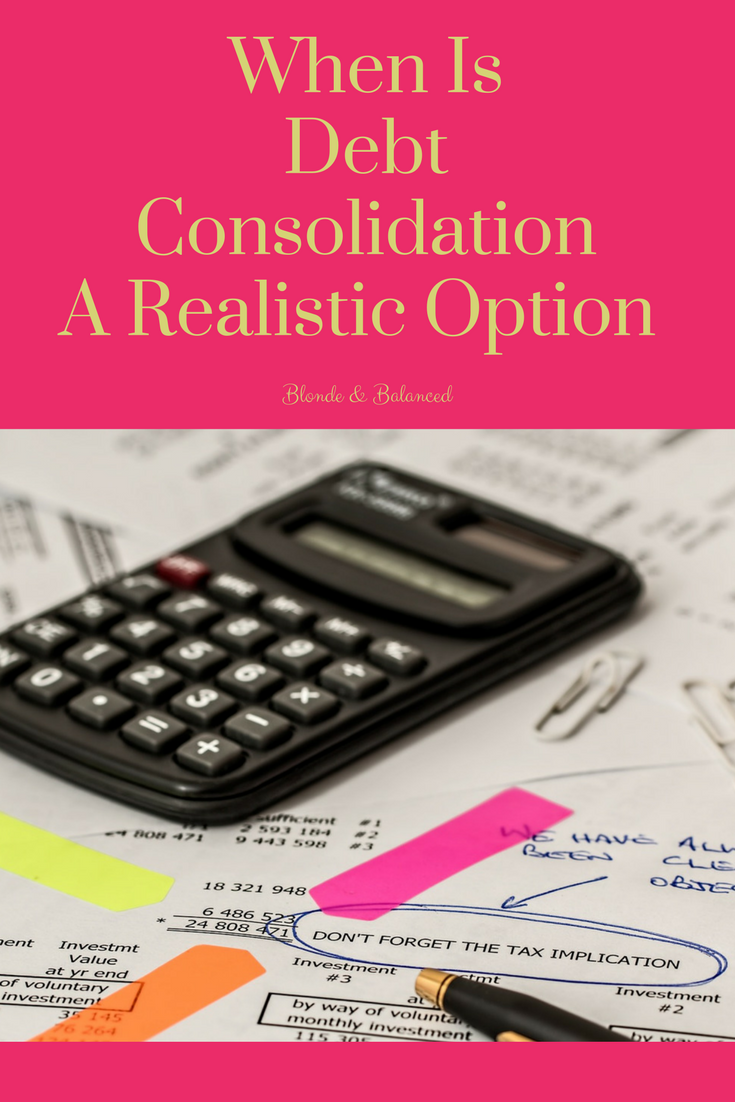If you’re deep in debt and working to just make ends meet, only making the minimum payments on your loans and credit cards, debt consolidation may seem like a great idea. Combine everything into one account to save interest and have a smaller monthly payment, it sounds like the perfect option. But is it?
Let’s take a look at what debt consolidation really is in able to make a more informed decision.
Simply put, debt consolidation is taking out one big loan in order to pay off all the smaller ones you have and it’s typically something for people who have a lot of consumer debt. Having just one place to pay, a smaller monthly payment, and reduced interest fees can seem like a great way to save money, but in most cases, the debt just grows back. And in many cases, it grows even bigger because additional debt is accumulated while the consolidation loan is being paid off.
This usually happens because most people who use debt consolidation don’t have a plan for how they will keep from getting in debt again. They haven’t reduced expenses, increased income, or budget wisely so they spend only cash without using credit cards. It’s also highly unlikely that they have an emergency fund for when the unexpected happens, so when it does, they need to use credit.
And while debt consolidation usually comes with a lower monthly payment, the payment is only lower because the term of the loan is extended; meaning you’re in debt much longer and end up paying much more to the lender. In some cases, the interest rate is even higher than the debt you currently have, so you’re paying much more in the long run.
Here’s an example that may help you understand how it works better:
Let’s imagine you have $25,000 in unsecured debt (credit cards and personal loans) and one of those loans is for two years for $5,000 at 12%, and the other is for four-years for $20,000 at 10%. Your monthly payment for each is about $270 for the first loan and $580 for the second, for a total monthly payment of $850.
A debt consolidation loan may lower your payment to about $550 per month and your interest rate to maybe 8 or 9%. That all sounds good, right?
The only problem is that it will now take six year to pay your loan off and you’ll end up paying close to $10,000 more for the new loan than you would have paid for the original ones. Your lower payment and lower interest turns out not to be the best deal after all.
When considering debt consolidation, it’s a good idea to look at options for better money management instead. Creating better money habits will get you out of debt faster and for less. Start with figuring out how much you owe (including all credit cards, personal loans, and student loans), then create a budget that allows you to make more than the minimum payment each month. This may require cancelling some of your “extra” services like premium cable and music streaming in order to make it happen, but in the long-run, you’ll be better off for it.






